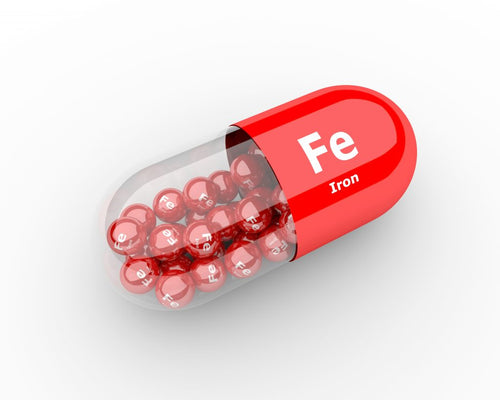Iron and vitamin D are two essential nutrients that play critical roles in the body. Iron produces red blood cells, while vitamin D is necessary for calcium absorption and bone health. Both of these nutrients are available in various food sources and can also be taken as supplements.
Get a free sample pack!
Although these nutrients are essential for the body, they can also be harmful if taken in excess. However, many wonder if they can take iron and vitamin D together. Read on to learn the exact answer!
Why Does Your Body Need Iron?
Iron is an essential nutrient that plays a vital role in our bodies. It helps transport oxygen in the blood and is also necessary for proper cell growth and development. Without enough iron, our bodies cannot function properly.
So why do we need iron? Iron is a mineral that our bodies need to produce hemoglobin, a protein in our red blood cells that carries oxygen to our tissues and organs. Iron is also necessary for proper cell growth and development. Without enough iron, our cells cannot function properly, leading to various health problems.
Why Do You Need Vitamin D?
Vitamin D is an essential nutrient, and many people commonly lack it. This vitamin helps our bodies absorb calcium, which is necessary for bone health. Vitamin D helps our immune system function properly and may even protect against some diseases.
Despite these benefits, many people do not get enough vitamin D. The reason for this is that our bodies naturally produce vitamin D when exposed to sunlight. But with people spending more time indoors and using sunscreen outdoors, they are not getting enough sun exposure to direct vitamin D. As a result, many people need vitamin supplements to ensure they are getting enough.

Are Vitamin D And Iron Safe To Take Together?
There are no reports of problems with consuming iron and vitamin D simultaneously. Research shows that iron is vital in a variety of enzyme systems and is that is required to activate vitamin D activation.
Vitamin D's activity is controlled through two sequential steps:
- 25(OH)D3 is created in the liver through a form of cytochrome P450 known as CYP2R1.
- The next step of hydroxylation occurs in the kidneys and other tissues through CYP27B1 to create 1,25(OH)2D3; CYP2R1 depends on NADPH-cytochrome P450 reductase for its function but is also dependent on two heme-containing substances ferredoxin reductase and ferredoxin.
According to this information, vitamin D's metabolism might depend on iron, and a low iron level could affect vitamin D's activation. However, evidence suggests supplementing iron for a long time and high vitamin D levels might interfere with iron absorption.
Taking iron and vitamin D together is generally safe and can help ensure you get enough of both nutrients. However, talking to your doctor before starting any supplements is essential, as they can interact with certain medications. Iron and vitamin D can also have side effects, so taking them as directed is necessary. In case of any questions or concerns, be sure to talk to your doctor.

How Can I Ensure That I Am Getting Enough Iron And Vitamin D?
Iron and vitamin D are two nutrients that are essential for human health. Our diets alone do not ensure enough of these nutrients for most people. This can lead to a number of health problems, such as anemia and osteoporosis.
You can do a few things to ensure you are getting enough iron and vitamin D in your diet. First, eat a diet that is rich in these nutrients. This means eating plenty of dark leafy greens, lean meat, and fatty fish. You can also take iron and vitamin D supplements if needed.
Finally, make sure you are getting enough sunlight exposure. This will help your body absorb vitamin D. However, you may also need to take supplements to get the necessary nutrients. You should speak with a healthcare professional to determine if you need to take supplements and, if so, what kind and how much.
By following these tips, you can ensure that you are getting enough iron and vitamin D in your diet. This will help you stay healthy and avoid any health problems that may arise from a deficiency in these nutrients.
Bottomline
Iron and Vitamin D are two essential nutrients the body needs for various functions. While you can take them together, you must speak with a doctor or registered dietitian first to ensure that you take the appropriate dosages. If you still have any concerns regarding Iron and vitamin D consumption, you can consider multivitamin gummies to fulfill your nutrient needs.


